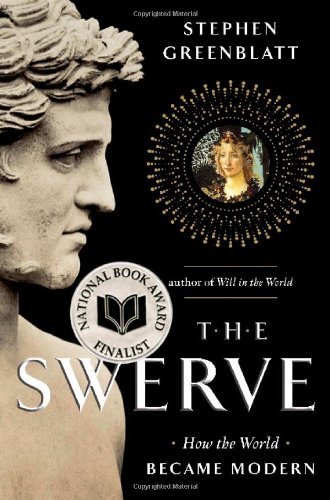The Swerve : How the World Became Modern 
By Stephen Greenblatt
ISBN: 9780393064476
The dark ages took a pretty brutal toll on Europe and it is no surprise that scholars of that era looked back to the writings of the Roman Empire with a reverence that they probably didn't deserve. But the rediscovery of one particular document, On The Nature of Things by the free thinking Lucretuis, inspired several generations of scholars and kickstarted the scientific revolution.
Or so Greenblatt's impressively researched book argues. Actually, most of the page count is concerned with a monk named Poggio Bracciolini who led a fascinating life against a backdrop of distant monasteries and vicious vatican politics, before becoming something of a professional manuscript hunter with On The Nature of Things his greatest find.
On The Nature of Things certainly sounds like a wonderful piece of work. It asserts that the Gods (if they exist) take no interest in humanity and that natural laws (not to mention random chance) hold complete sway over events. It even claims that all matter is made of tiny particles, which is a remarkable guess. I imagine it was pretty heady stuff for stuffy 15th century society.
The Swerve is at its best when it is describing Bracciolini's life and the state of 15th century Italy. But it makes an unconvincing argument that On The Nature of Things' rediscovery deflected caused the course of human thinking to swerve (to use the book's tortured analogy) away from dogma towards science. There were lots of things going on, and the new found popularity of an ancient poem was only part of the story.
Despite that quibble, The Swerve is well written and informative if perhaps a little dense for summertime reading.